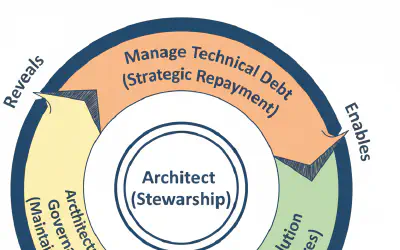The Architect's Compass
Understanding the core conflict between speed and scale is the architect's first challenge. This post explores how to translate business pressures into concrete drivers and navigate critical trade-offs.
 Featured Series
Featured SeriesUnderstanding the core conflict between speed and scale is the architect's first challenge. This post explores how to translate business pressures into concrete drivers and navigate critical trade-offs.

Learn how to translate vague business goals into concrete, measurable architectural drivers using Quality Attribute Scenarios (QAS) to identify and address critical risks.

A practical guide to analyzing Monolithic, Microservices, and Event-Driven architectural styles against real-world business drivers to choose the foundational style for your system.

Learn how to move from qualitative analysis to a final, justifiable, and data-informed architectural decision using a Weighted Scoring Matrix to factor in business priorities.

Explore how architectural spikes bridge the gap between theoretical decisions and real-world implementation, validating hypotheses and assessing team readiness for complex architectural styles.

Learn how to effectively document and communicate architectural decisions using Architectural Decision Records (ADRs) and the C4 Model to prevent 'Architectural Amnesia' and maintain clarity.

Beyond making initial decisions, an architect's true role involves continuously guiding the evolution of a system, establishing governance, and strategically managing technical debt.
